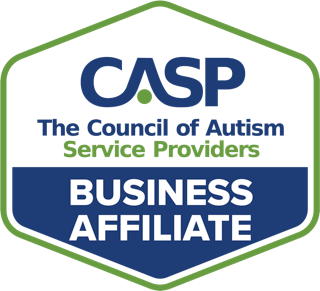As a supervisor, your role extends far beyond task oversight; you have the power to shape the experience of your team, the future of your profession and leave a lasting impact on the lives of those you serve. Which is why effective supervision is so pivotal in empowering your staff to deliver the highest quality care to their clients.
As part of our Next Guest webinar series, Dr. Bridget Taylor, founder and CEO of Alpine Learning Group and Rethink BH’s Senior Clinical Advisor, sat down with Dr. Tyra Sellers, author and CEO of the Association of Professional Behavior Analysts for a conversation on cultivating ethical, positive and impactful supervisory relationships.
Here are 5 key takeaways that you can incorporate into your practice today:
1. Embrace a Growth Mindset
Approach supervision as a continuous learning experience. Acknowledge that perfection is an ever-evolving pursuit and be willing to adapt and refine your own methods as you encounter new challenges. For your supervisees:
- encourage open dialogue
- solicit feedback
- provide access to resources, workshops, and training opportunities that align with their goals and interests
Creating an environment where mistakes are viewed as opportunities for growth will go a long way towards cultivating a culture of excellence in your organization.
2. Foster Cultural Responsiveness
Your supervisees and clients may come from diverse backgrounds – you can incorporate culturally responsive practices into your supervisory approach by striving to understand and respect their unique perspectives and experiences.
By challenging your own implicit biases and having open discussions about diversity, you’ll create a safe space for authentic expression.
3. Prioritize Ethical Conduct and Accountability
Model ethical decision-making in your practice by consistently evaluating the effectiveness of your supervision. Adhere to the guidelines set forth by the Behavior Analyst Certification Board (BACB) and regularly review the Code of Ethics with your supervisees – you’ll create a safe space to address ethical dilemmas should they arise.
Also, make sure you’re transparent with your team about expectations for employee performance. Structured tools and assessments can help identify improvement areas, track progress and provide clear guidance when corrective action is necessary.
Adhere to the guidelines set forth by the Behavior Analyst Certification Board (BACB) and regularly review the Code of Ethics with your supervisees – you’ll create a safe space to address ethical dilemmas should they arise.
4. Cultivate Effective Communication
Establish open and transparent lines of communication with your supervisees. Do your best to:
- actively listen to concerns
- provide constructive feedback
- offer guidance in a supportive and non-judgmental manner
Schedules get busy and stressors are inevitable but allowing your supervisees to voice their perspectives and experiences will create an environment where difficult conversations can be navigated with empathy and respect.
5. Champion Work-Life Balance
Recognize the importance of self-care and work-life balance – for both you and your supervisees:
- encourage healthy boundaries
- adopt stress management techniques
- foster an environment that values mental and emotional well-being
When you lead by example, you become a real-time demonstration of how to maintain a sustainable and rewarding career in ABA therapy.
Learn More about Ethical Supervision
You can listen to the full conversation between Dr. Taylor and Dr. Sellers in the replay of this On-Demand Webinar below. Our RethinkBH library of resources is also filled with insights, inspiration and practical tools for BCBAs and those who serve the Behavioral Health community.
About this Webinar
Dr. Tyra Sellers, owner of TP Sellers, LLC and author of Training Performance Success, and Dr. Bridget Taylor, co-founder, and CEO of Alpine Learning Group, join Rethink to discuss key considerations for effective supervision in our webinar, “Top 5 Skills Needed for Effective Supervision.”.
This webinar is eligible for 1 Supervision CE. (Recorded)
Learning Objectives
At the conclusion of the presentation, participants will be able to:
- list the 5 recommended practices for supervision
- describe several behaviors associated with effective feedback on the part of the provider and receiver
- identify behaviors that contribute to a positive long-term supervisory relationship
About the Speakers

Dr. Tyra Sellers, JD, Ph.D, BCBA-D
Owner of TP Sellers, LLC
Dr. Sellers earned a B.A. in Philosophy and M.A. in Special Education from San Francisco State University, a J.D. from the University of San Francisco, a Ph.D. from Utah State University, and is a Board Certified Behavior Analyst®. Her professional and research interests focus on professional ethics, training and supervision, assessment and treatment of severe problem behavior, and variability.
Dr. Sellers has over 20 years of clinical experience working with individuals with disabilities in a wide variety of settings. She has held positions as an Assistant Professor at Utah State University and as the Director of Ethics at the Behavior Analyst Certification Board®. She has published several journal articles, four co-authored book chapters, co-authored the book titled Building and Sustaining Meaningful and Effective Relationships As A Supervisor and Mentor and the workbook titled pair titled The New Supervisor Workbook and The Consulting Supervisor’s Workbook. She currently serves on the editorial boards for several journals.










